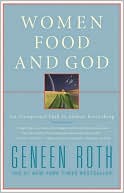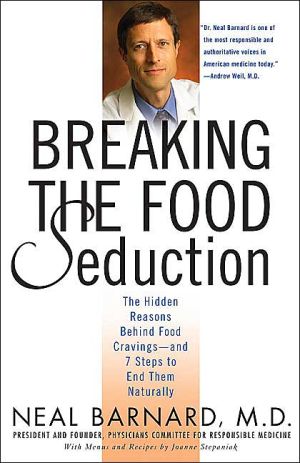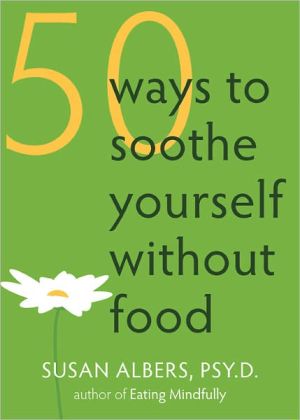Handbook of Self-Regulation: Research, Theory, and Applications
1. Understanding Self-Regulation: An Introduction, Kathleen D. Vohs and Roy F. Baumeister\ I. Basic Regulatory Processes\ 2. Self-Regulation of Action and Affect, Charles S. Carver\ 3. Affect Regulation, Randy J. Larsen and Zvjezdana Prizmic\ 4. The Cognitive Neuroscience of Self-Regulation,\ Jane F. Banfield, Carrie L. Wyland, C. Neil Macrae, Thomas F. Munte, and Todd F. Heatherton\ 5. Self-Regulatory Strength, Brandon J. Schmeichel and Roy F. Baumeister\ 6. Willpower in a...
Search in google:
Bringing together a stellar array of self-regulation researchers, this comprehensive and authoritative handbook addresses the breadth of current theories, findings, and practical applications in the field. Examined are the conscious and nonconscious processes by which people regulate their thoughts, emotions, attention, impulses or appetites, and task performances; the developmental trajectories of these capacities; and implications for personal relationships, addictions, consumption, and mental health. The ways individuals differ in their basic abilities and styles of self-control are considered, as are strategies for enhancing functioning in this area. Offering cutting-edge coverage of a key dimension of human experience, the Handbook also identifies important questions for future investigation.
Bringing together a stellar array of self-regulation researchers, this comprehensive and authoritative handbook addresses the breadth of current theories, findings, and practical applications in the field. Examined are the conscious and nonconscious processes by which people regulate their thoughts, emotions, attention, impulses or appetites, and task performances; the developmental trajectories of these capacities; and implications for personal relationships, addictions, consumption, and mental health. The ways individuals differ in their basic abilities and styles of self-control are considered, as are strategies for enhancing functioning in this area. Offering cutting-edge coverage of a key dimension of human experience, the Handbookalso identifies important questions for future investigation.
\ From the Publisher"Baumeister and Vohs have assembled an impressive ‘who's who' of researchers in the field of self-regulation. Presented is state-of-the art, scholarly, and creative work that examines the topic from cognitive, neuroscientific, social learning, developmental, and a variety of other perspectives. The Handbook gives equal attention to basic theory and practical applications, speaking to questions ranging from the nature of the self to the ways we control sexual behavior, eating, and alcohol use. This volume is a basic and necessary resource for anyone who plans to do research on self-regulation or who wishes to understand the current state of knowledge in the field."—David Funder, PhD, Department of Psychology, University of California, Riverside\ "Self-regulation is an important ingredient of human behavior and social interactions, yet it is also a topic that generates considerable theoretical and methodological disagreements. This volume is particularly valuable in its inclusion of the full range of perspectives on self-regulation, covering both theoretical and applied aspects. Readers will not only gain an appreciation of different issues and ways to think about them, they will also learn what is new and exciting about the study of self-regulation. I highly recommend this book as a resource for researchers and a useful text for advanced undergraduate- and graduate-level seminars."—Claire B. Kopp, PhD, The Berger Institute for Work, Families and Children, Claremont McKenna College\ "The field of self-regulation ranges across topics in psychopathology, social and personality psychology, development, cognition, and now, neuroscience. This handbook captures both the breadth and depth of the field, offering valuable and integrative chapters that illustrate how people regulate their thoughts, emotions, and actions—and, as well, how these processes of self-regulation break down."—Daniel M. Wegner, PhD, Department of Psychology, Harvard University\ "The study of self-regulation has blossomed into one of the most fruitful approaches to understanding affective, cognitive, and behavioral processes. Now, thanks to Baumeister and Vohs, we have an exquisitely comprehensive handbook on the topic. Authors include many of the important current contributors to the field. The volume's accessibility makes it a good candidate for text use, while at the same time, its thoroughness promises to make it a standard reference. A clear standout among the many handbooks currently shouting for shelf space."—Abraham Tesser, PhD, Institute for Behavioral Research, University of Georgia\ "The most complete work to date on social-cognitive theories of self-regulation. Chapters present innovative research on such topics as intentions, self-control, and coping, within specific theoretical frameworks that can be compared and contrasted. Moreover, the Handbook is unique in its emphasis on linkages among social-cognitive research and developmental, neurological, and clinical phenomena. The Handbook's thematic focus on social-cognitive theories, coupled with its integrative extensions and applications of the research, make this a resource that is sure to be of lasting value to the field."—Richard Ryan, PhD, Department of Psychology, University of Rochester\ \ \








